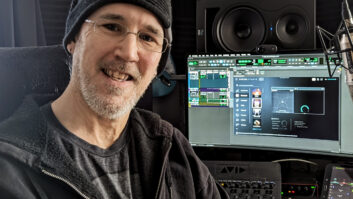Arlington, Va. — In a formalized filing with the Federal Communications Commission (FCC), the Consumer Electronics Association (CEA) “vehemently opposed” a petition raised by a group of broadcasting organizations to have the FCC reconsider a ruling not to impose performance standards for digital television receivers.
“CEA and its members strongly oppose broadcasters’ continued calls for government-imposed performance standards for digital television receivers,” the association’s statement reads. “As the Commission recognizes, ‘DTV receiver manufacturers, driven by market forces, are continuing to make significant improvements in their products, particularly in the area of indoor reception and multipath signal handling capabilities.’ ”
CEA’s statement also predicted that any “government-mandated performance standard would impede innovation and lead to the lowest common denominator solutions.”
The latest filing came in response to a petition by a group of broadcasting organizations, who have asked the FCC to reconsider its ruling in the DTV Biennial Review Order, in which the regulatory body said it would not adopt mandatory performance standards for DTV receivers.
The FCC plans additional analysis and said it may conduct additional tests in the Baltimore area.
In challenging the broadcaster petition, CEA said the FCC lacks statutory authority to impose such standards on manufacturers, and would be making a poor policy decision if it did so at a time when sales of DTV products are “thriving in the consumer marketplace.”
CEA said the 87th Congress “explicitly considered and rejected” the possibility of granting the FCC the authority to impose TV set performance standards while drafting the All-Channel Receiver Act.
Regarding the matter of policy, CEA said: “Throughout its DTV proceedings, the Commission has recognized the inherent difficulties of predicting consumer demand… The Commission was properly reticent about predicting market demand. Equipment manufacturers, motivated by market demands, are in the best position to respond quickly to marketplace changes.”
Turning the focus back on the broadcasting industry, Gary Shapiro, CEA president, said, “The Commission made the proper decision in its original ruling on receiver standards. We now urge the Commission to turn its focus toward content and ensure that broadcasters meet their obligation to provide viewers with ample, high-quality digital programming.”
Meanwhile, in a related matter, the FCC recently concluded DTV receiver performance appears to be improving. In tests conducted in the Washington, D.C., area, using both mast and rabbit-ear antennas, the FCC determined 98 percent of the locations tested were able to receive an acceptable digital-TV signal, up from between 63 percent and 79 percent in 1998.
Outdoor antennas performed acceptably in 98 percent of locations tested, up from 83 percent in 1998, while indoor antennas where found acceptable in 85 percent of locations.













